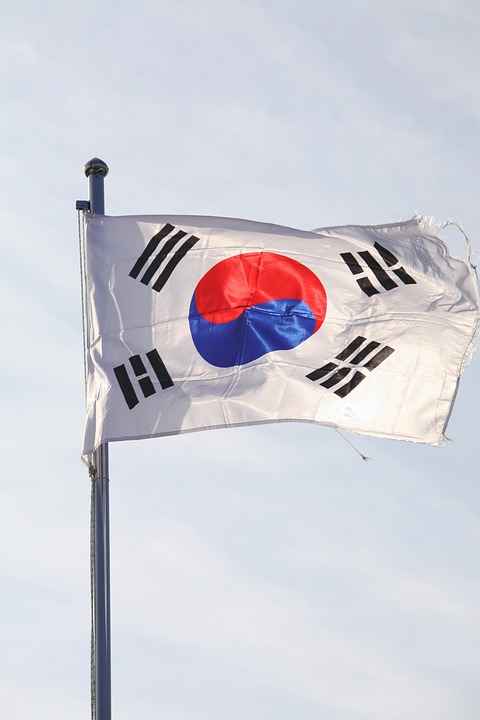The Kim Young-ran Act
By Justin Fendos
Published on November 7, 2016

In the last few months, South Korea has embarked on a very interesting experiment, an anti-graft law that applies to everyone. The parameters of this law, called the Kim Young-ran Act, are focused on gifts and payments made for another’s benefit. Food purchases made for someone else, for example, can’t exceed 30,000 Korean dollars, an amount equal to about US$26. Material gifts, such as floral bouquets, can’t exceed $43 and gift money, including for weddings and funerals, can’t exceed $86. The annual cap for any collection of gifts and meals a single person can receive is set at about $2600. Violations of the law can be reported at any local police station, even by a casual observer unrelated to the transaction in question.
For those who have experienced Korean culture, it is probably easier to appreciate just how drastic these measures are. Few things in Korean culture are more significant than the act of gift-giving or the gesture of a shared meal. Gifts are usually a way of showing respect to elders or superiors and have been especially important in business and employment. In fact, there have been many infamous examples of promotions being awarded to the employee who ingratiated him/herself the most with bosses.
Shared meals, on the other hand, have been a common way to lubricate the inclusion of a new individual, perhaps into a work group or business network. In fact, the most common greeting between Korean acquaintances literally translates as “Have you eaten?” If the answer to this question is “no”, it is followed almost immediately by an offer to eat together, often with the oldest person paying or providing. That’s how important sharing food has been in Korean culture.
Even though the new law has only been active for a few months, there has already been a substantial drop in customers at many restaurants, especially those frequented by government employees. This drop has stirred concern about serious economic damage being done to Korea’s food industry as well as other areas of consumption such as alcohol and floristry. Estimates for the damage to come have ranged wildly from tens to hundreds of millions of dollars.
So how does Korea get to the point of throwing its cultural soul into the fight against corruption? The answer is public outrage, an outrage facilitated by open social dialogue. In the late 1980s, Korea was still a relatively private society. News networks were largely controlled by closed conglomerates that bowed and swayed to the government’s will. But in the early 2000s, the closed nature of Korean society unraveled quickly, catalyzed in large part by the emergence of a youth culture and the arrival of the internet. Many of the scandals involving bribery that normally would have been quietly covered up were dragged into the open. Stories about high school students with poor grades who still went to the best universities because their parents gave good gifts and the tales of young employees who never got a raise because they couldn’t afford to buy their bosses an expensive meal saturated the public consciousness, demanding the only logical conclusion: “this isn’t fair”. Soon, films, television, and even comic books hammered home the message: this lack of fairness is wrong and needs to be changed.
In the last century, a number of other countries have, of course, attempted policies similar to the Kim Young-ran Act. In many of these cases, the policies were just eye candy to mollify the public, a facade with no teeth. In others, the policies were well-intentioned but never stood a chance to succeed because they relied on implementation by officials who were already part of an irreversibly corrupt system. Korea seems poised to be different.
Not only does South Korea have a well-developed democracy with an organized bureaucracy that is responsive to the people, the degree of public expectation (71% of the population is highly in favor of the new law) and the new-found translucency of Korean society, again facilitated by the internet, make it very likely the new law will clean up a number of different sectors, most notably education and the common work place. Young employees in government positions are now expected to be able to refuse gifts more easily and feel less pressure to do what an elder or superior wants just because that person made a generous wedding donation. As is said in Korean, “The eyes of the people must strike fear into the hearts of its leaders.”
As many news outlets have already reported, the new law is in its infancy. Many of the specifics of its implementation are imperfect and likely to undergo changes. As history has demonstrated on countless occasions, the big fish will likely find ways to circumvent the new law. Instead of leaving boxes of cash in the trunk of a car, they might start giving cushy jobs to allies after they leave public service or provide a series of hefty speaking fees. But these criticisms miss the point. The Kim Young-ran Act is not really designed to go after the big fish. It is designed instead to address institutionalized corruption, particularly at the lower levels. Even if the experiment ends up failing, no one can accuse Koreans of failing to put their souls into the fight.
The Author

Justin Fendos is an Associate Director at the Tan School of Genetics and a Professor at Dongseo University. He holds a Ph.D. from Yale University.
Article picture: HeungSoon via Pixabay


